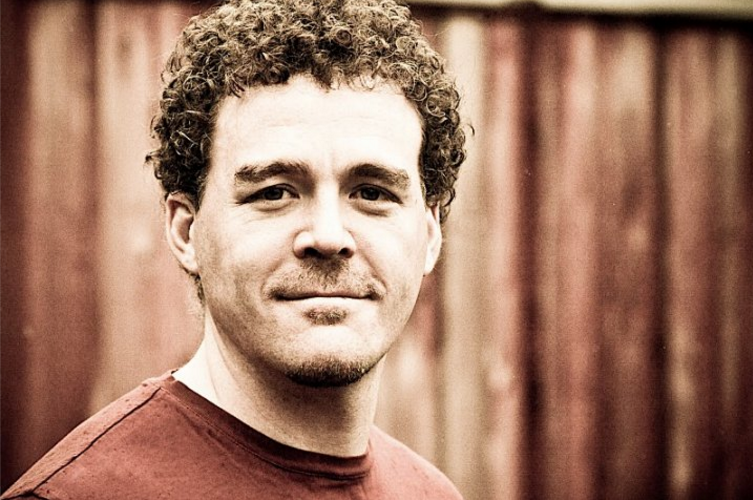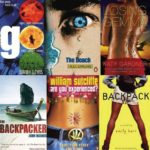Julian Smith is the author of Crossing the Heart of Africa: An Odyssey of Love and Adventure, which won the 2011 Outstanding Book Award in memoir/autobiography from the American Society of Journalists and Authors. Smith is the author of guidebooks to Ecuador, El Salvador, Virginia and the Four Corners, and his articles and photographs have appeared in Smithsonian, Wired, Outside, National Geographic Traveler, New Scientist, the Los Angeles Times, the Washington Post, and US News & World Report. He helped launch and edit Frontiers in Ecology and the Environment, an international peer-reviewed scientific journal, and has won the country’s top travel writing award from the Society of American Travel Writers.
How did you get started traveling?
When I was a kid, my parents took me on a lot of road trips all around the country. They also sent me to some great summer camps, like the wilderness camp in Wyoming where I ate my first squirrel. My first experience living abroad was the summer between high school and college, when I did a home-stay with a family in Brazil. Then midway through college I backpacked through East Africa for a month with some friends, and I was hooked.
How did you get started writing?
I’ve always read a lot, and writing seems to be a natural outgrowth of that, from absorbing stories to creating them. After the usual angst-y junior high scribbling, I learned how to write a real essay in high school and then took a some nonfiction writing classes in college, even though I majored in biology. My first paid gigs were for local papers in Charlottesville, VA, where I went to school.
What do you consider your first “break” as a writer?
Right after college, a friend and I decided for some inexplicable reason to publish a guidebook to El Salvador. It’s a long story, but to do this we had to start our own publishing company, which we called On Your Own. We traveled to El Salvador (just a few years after it civil war ended) to research the book, took all the photos, drew the maps, designed and laid everything out, had it printed in Singapore and distributed in the U.S. It was an incredible learning experience and one I wouldn’t repeat if you put a gun to my head. But having a book you wrote in hand opens a lot of doors, I found.
As a traveler and fact/story gatherer, what is your biggest challenge on the road?
Not getting burned out talking to strangers and taking notes constantly, always having to be “on.” After a while I just need to go to a movie or retreat to my hotel room and bury my nose in a book to recharge.
What is your biggest challenge in the research and writing process?
Doing too much research. I can get so into stories, learning all these cool new things, that I’ll just keep digging and digging until I have far more info than I need to actually write the piece.
What is your biggest challenge from a business standpoint? Editors? Finances? Promotion?
Yes. All of the above. Pitching ideas can be tiring, especially when the process seems so random, arbitrary and nepotistic sometimes. The economy tanking and the tech-driven upheaval of the entire publishing industry doesn’t help.
Have you ever done other work to make ends meet?
I’ve taught writing and editing at various colleges, and also through the Gotham Writers Workshop online. Other than that, all my income has come from either writing or photos for years now.
What travel authors or books might you recommend and/or have influenced you?
I tend not to read much travel writing per se unless it’s historic, involves extreme adventure, or somehow weaves in science, so I feel I’m learning something. But I love Alan Booth’s travel books on Japan, Looking for the Lost and The Roads to Sata. Beryl Markham’s West With the Night is a gorgeously written book about Africa in the days of Isak Dinesen and Hemingway. Colin Fletcher’s books on backpacking (The Man Who Walked Through Time, The Thousand-Mile Summer) are all great. Anything by Ed Abbey and almost anything by Tim Cahill. I’m a sucker for stories that involve suffering in the wilderness, ideally on a mountain or in a boat, like Touching the Void by Joe Simpson, Minus 148° by Art Davidson, or A Voyage for Madmen by Peter Nichols. I also love Seth Stevenson‘s irreverent pieces for Slate.com, like “Tokyo on One Cliche a Day” and “Trying Really Hard to Like India.”
What advice and/or warnings would you give to someone who is considering going into travel writing?
Marry money. And diversify — the more income streams you can milk, the better: teaching, editing, photography, anything. With that in mind, keep an eye on where technology is taking us — ebooks, iPad apps, etc. Double- or triple-dip whenever possible, i.e. write multiple stories about the same place or topic for different outlets. (“Sell every piece three times,” I once heard, and it was solid advice.) Network! Wring everything you can out of every personal contact you have, which is the main advantage of joining writers’ groups and associations. Meet editors in person whenever possible, even if just for a coffee — it makes it much harder for them to say no to you later on. Read, read, read, as many different genres as you can. And treat writing like a job, because it is: sit down every day and crank out the words, either pieces or pitches, just like you’re building cars, mixing test tubes or selling stocks.
What is the biggest reward of life as a travel writer?
Getting to step outside your comfortable life, even if only temporarily, and see everything we take so for granted from the outside, through the eyes of others. Coming home is always one of my favorite parts of traveling, when everything and everyone familiar seems new again, even if only for a little while. Being reminded of how lucky some of us are to even have the option of doing this for a living.





